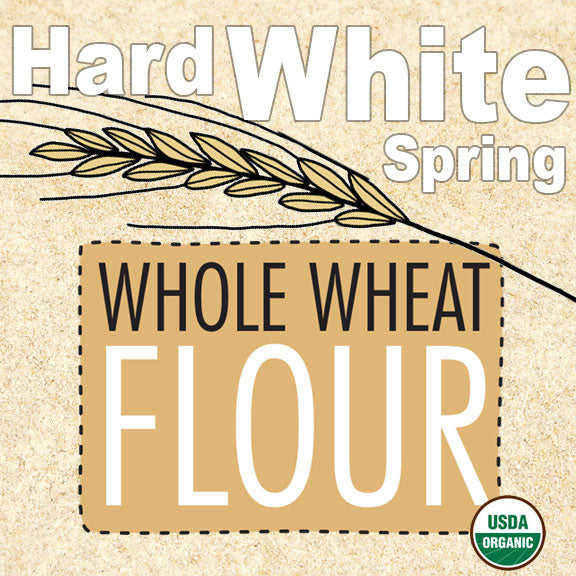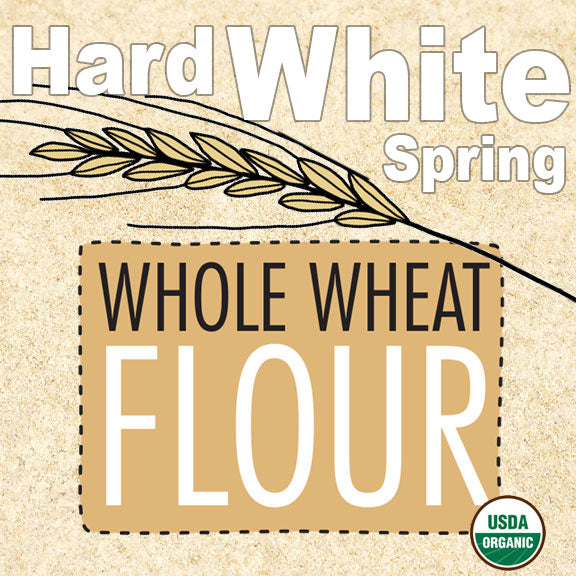Breadtopia
Organic Hard White Wheat Flour
- Regular price
- $150.30 USD
- Regular price
-
- Sale price
- $150.30 USD
- Unit price
- per
Couldn't load pickup availability
Organic Hard White Wheat Flour – 40 lb bags
The term “hard” refers to the higher protein content of this wheat. Higher protein flour is typically preferred for bread baking vs the lower protein “soft” white wheat which is used more for other baked goods.
White wheat’s growing popularity is driven in part by parents desire to make whole grain nutrition more acceptable to their kids “whole wheat adverse” palettes. White wheat’s lighter color and milder flavor often accomplishes the objective.
White wheat is a different type of wheat that has no major genes for bran color (unlike traditional “red” wheat which has one to three bran color genes). An easy way to think of it is as a sort of albino wheat. The bran of white wheat is not only lighter in color but it’s also milder in flavor, making whole white wheat more appealing to many people accustomed to the taste of refined flour.
The term “white flour” has often been used to mean “refined flour,” so “whole white wheat flour” sounds like a contradiction in terms. But it is simply WHOLE flour – including the bran, germ and endosperm – made from WHITE wheat.
White wheat does not contain the strongly-flavored phenolic compounds that are in red wheat. This gives white wheat a milder flavor, and also means that products made with white wheat require less added sweetener to attain the same level of perceived sweetness.
Experts consider red and white wheat to be the same, nutritionally. Most of the nutrition differences among wheat varieties are driven by environmental conditions, such as weather and soil composition. For example, when crops are in a drought, the protein in wheat will be higher and may function differently.
Since this flour contains wheat germ and wheat germ is an oil, this flour will not keep for as long as typical commercially milled white flour. Do not purchase more than you expect to consume within a few months. We recommend keeping your flour in air tight packaging or container and storing in a cool place or preferably the refrigerator or freezer.
Share


